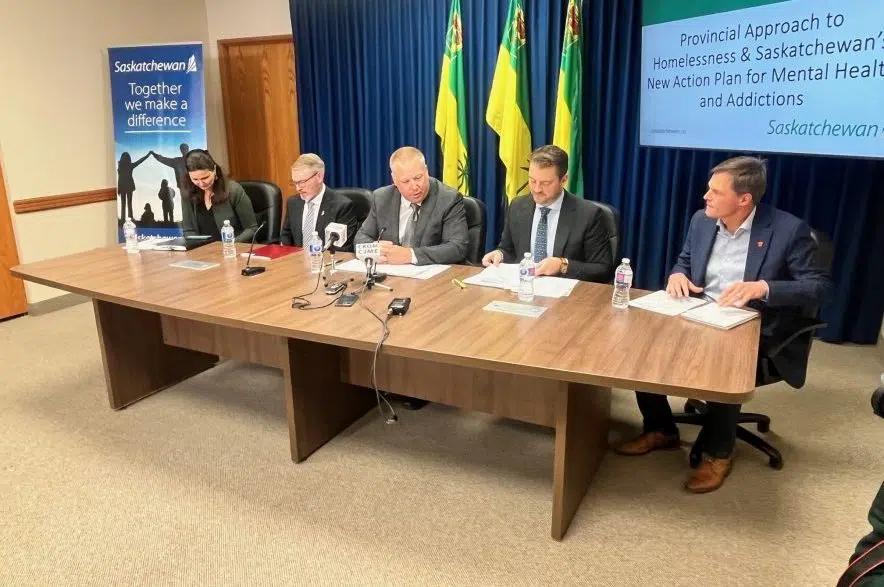Saskatchewan’s $49.4 million plan announced Friday will create 500 new treatment spaces and a central intake system, which allows patients to refer themselves for mental health and addictions services.
These added spaces will double the amount available in communities across the province.
“Our plan is to build a full continuum of care that includes detox, inpatient treatment, and supportive living that is as seamless as possible and recognizes that the pathway to recovery is different for each patient,” Mental Health and Addictions Minister Tim McLeod said in a news release.
“This plan helps ensure the safety of both those suffering with addictions and those in their communities.”
The plan’s foundation includes building capacity for treatment, improving the system and transitioning to a model that prioritizes individual needs.
The Recovery-Oriented System of Care (ROSC) model takes a “holistic, flexible, and individualized approach” to treatment. This new model aims to foster a sense of ownership throughout recovery and prioritizes conditions needed for lasting results.
It offers longer treatments for those using highly addictive drugs like opioids and methamphetamine, which often see poor results with traditional 28-day models.
The plan includes mental health programming for students in five more school divisions in time for the next school year. It also provides services for new supportive housing units announced in Friday’s provincial homelessness plan.
The funding will also create a Provincial Opioid Agonist Therapy program to make medication more accessible, including for patients in correctional institutions and after their release.
The new action plan replaces Saskatchewan’s 10-year plan for mental health and addictions, which expires in 2024.











